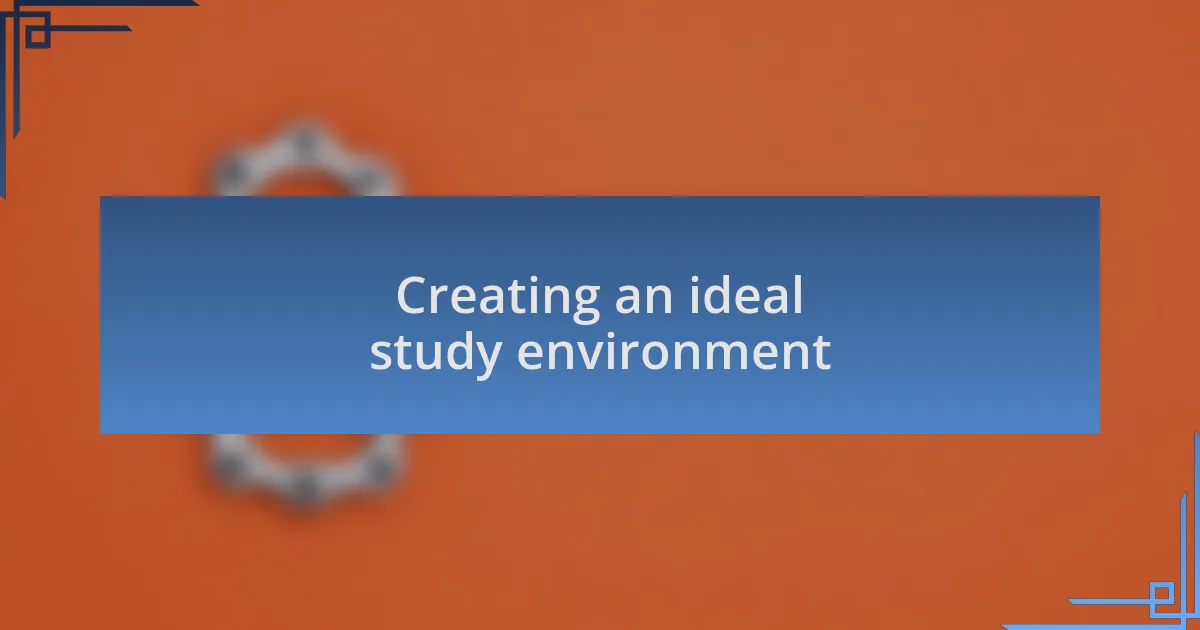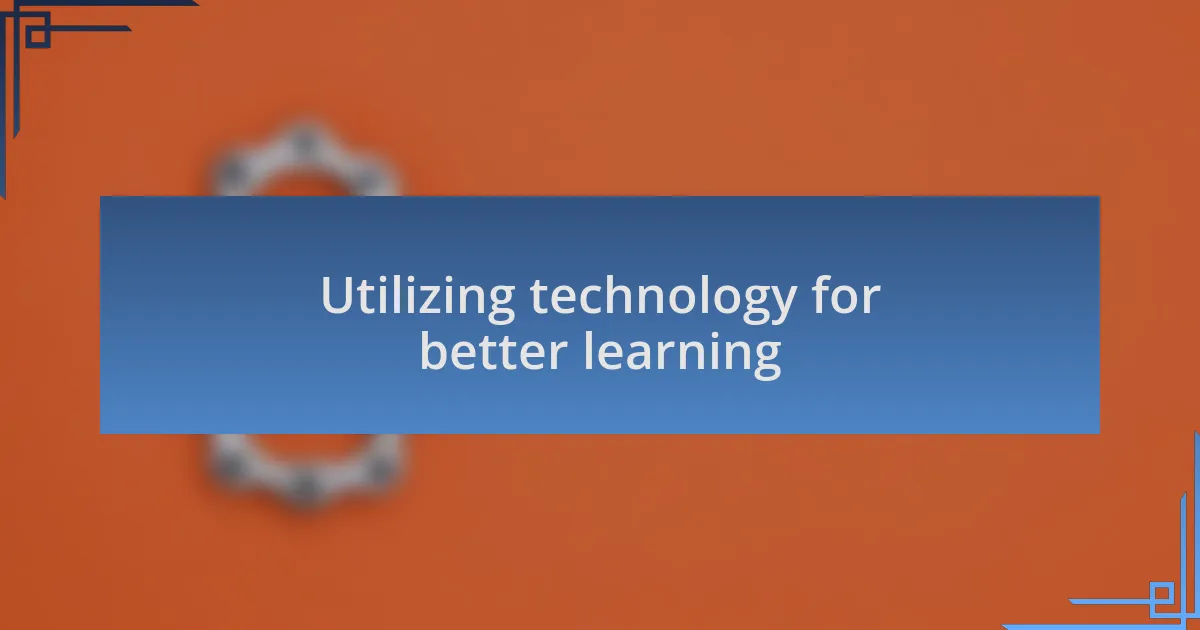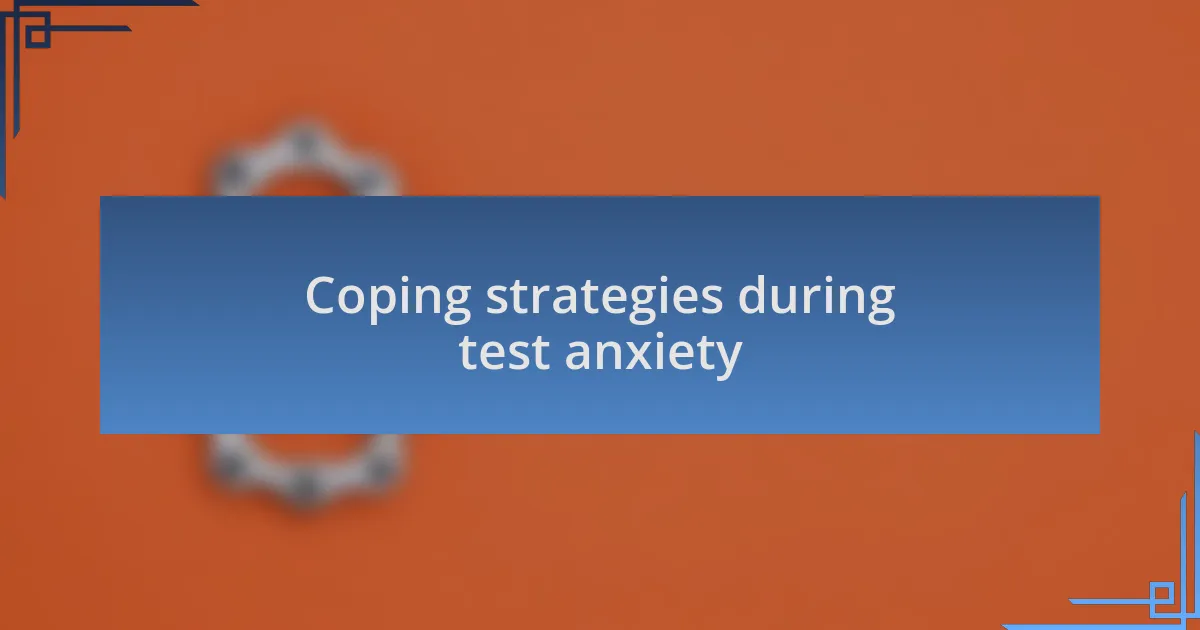Key takeaways:
- Creating a tidy and well-lit study environment enhances focus and mood, especially for individuals with dyslexia.
- Utilizing technology, such as speech-to-text and digital flashcard apps, can significantly improve learning and retention.
- Coping strategies like grounding techniques, positive self-talk, and mindfulness are effective in managing test anxiety.

Creating an ideal study environment
Creating an ideal study environment is crucial for effective learning, especially for those with dyslexia. I remember when I first discovered how much a tidy space made a difference; I decluttered my desk and instantly felt more focused. Have you ever noticed how distractions in your surroundings can lead to frustration and lost time?
Lighting can truly transform a study space. I found that studying in natural sunlight not only lifted my mood but also helped me concentrate better. Have you ever tried switching off harsh overhead lights in favor of softer lighting? It might seem small, but the right lighting can enhance your study experience significantly.
Another important aspect is the choice of seating. I often switched from a conventional desk chair to a more comfortable one, which made marathon study sessions much more bearable. Have you thought about how your seating might impact your focus? Comfort can greatly influence how well we retain information, especially during longer study periods.

Utilizing technology for better learning
Utilizing technology has become a game-changer in my approach to learning. For instance, I discovered speech-to-text software, which allowed me to articulate my thoughts without the barrier of writing difficulties. Have you ever tried recording your notes or lectures? Hearing the information in a different format can make a huge difference in comprehension.
Another tool that has significantly aided my studies is digital flashcard apps. I used to struggle with rote memorization, but these apps offered a dynamic way to engage with the material. It felt almost like a game, and I found myself motivated to review concepts more frequently. Have you considered how gamifying your studying could enhance retention?
I also find great value in assistive reading technologies, such as text-to-speech applications. When I listen to articles or textbooks rather than just reading them, I experience a deeper understanding of the content. It’s fascinating to acknowledge how these tools not only support my learning but also boost my confidence. Have you ever thought about the potential of technology to revolutionize your study habits? It truly can transform the way we perceive and process information.

Coping strategies during test anxiety
When test anxiety strikes, I often find that grounding techniques work wonders. For me, taking a moment to focus on my breath can bring a surprising sense of calm. I usually close my eyes and take slow, deep breaths, counting to four as I inhale and exhale. Have you ever noticed how a few deep breaths can dramatically shift your mindset?
Another strategy I rely on is positive self-talk. It’s all too easy to let negative thoughts creep in during a test, but I make a conscious effort to replace them with affirmations. Phrases like “I am prepared” or “I can handle this” help me reset my emotions. When I remind myself of my capabilities, I feel more equipped to tackle the challenge. Don’t you think encouraging yourself can make a real difference in how you approach anxiety-inducing situations?
Additionally, I’ve found that practicing mindfulness can be incredibly helpful. Just the other day, I took a few minutes before a practice test to visualize myself succeeding and feeling confident. This mental rehearsal not only eased my nerves but also made me feel more focused when it was time to test. Have you ever tried visualizing success before diving into something daunting? It can be a powerful way to prepare both your mind and body.